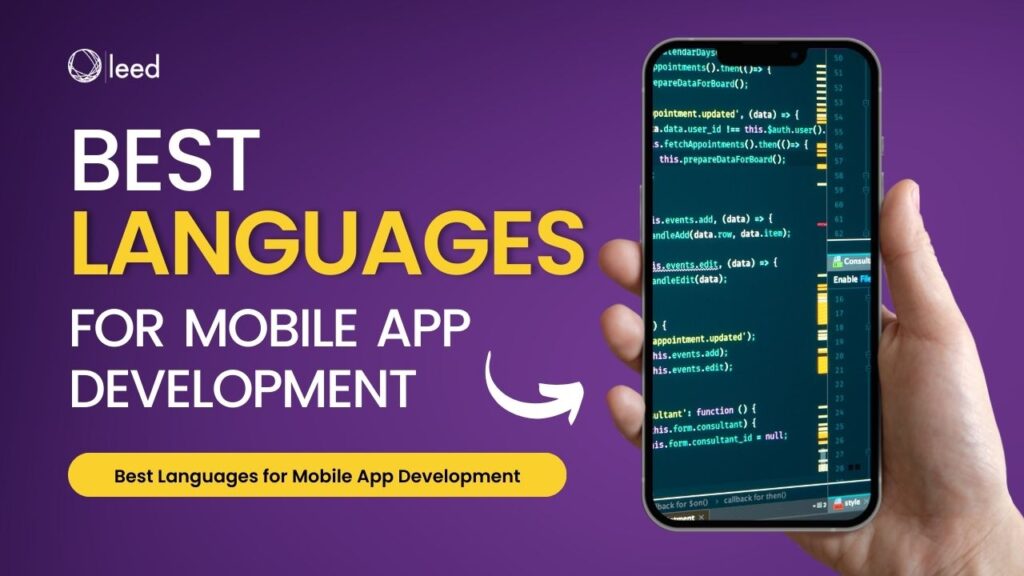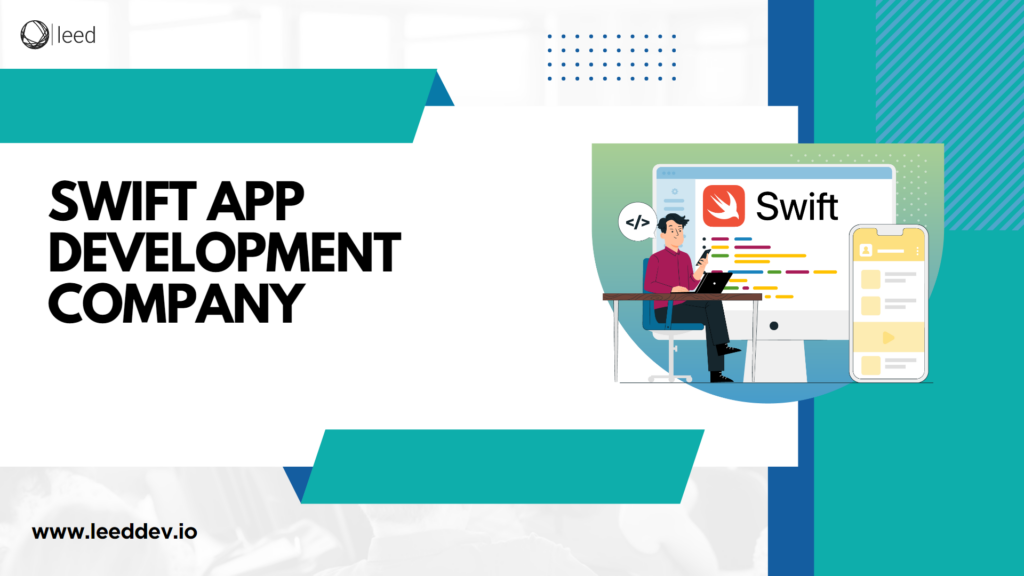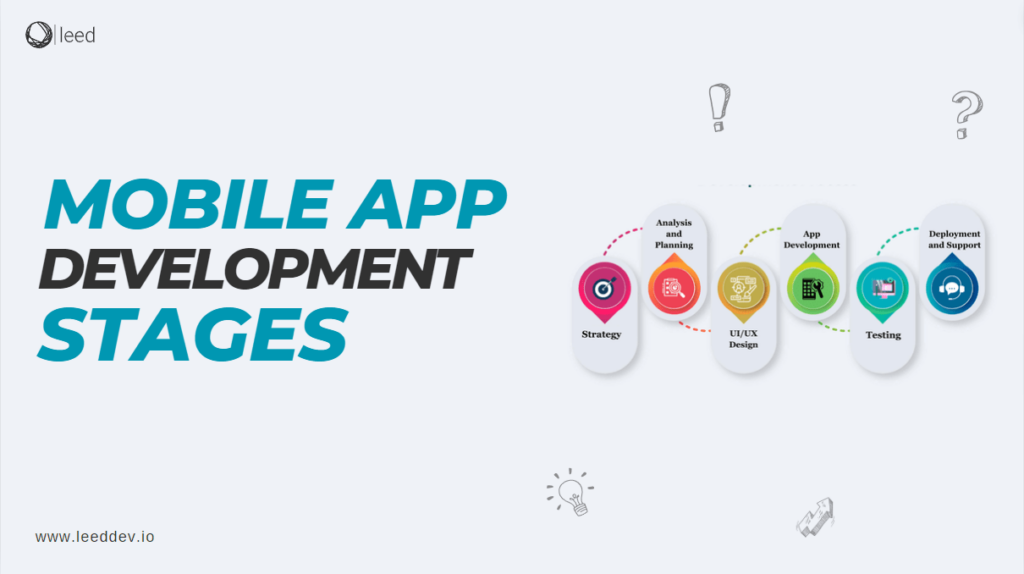The best languages for app development have been explained in this article. With the increasing demand for mobile apps, developers skilled in platforms such as Android or iOS are in high demand. Established and small companies alike are hiring app developers to create their mobile applications.
Although there are numerous programming languages out there, not all are appropriate for app or web development. To select an ideal programming language that meets the demands of your app, it’s vital that you familiarise yourself with your options and choose one of the more widely-used ones that suits them best.
Java or Kotlin should be employed when developing apps for Android phones while Swift should be employed when designing iPhone applications. Other popular languages like JavaScript with React Native may also be utilized for cross-platform development to produce applications that run both on Android and iOS devices.
Read also: How to Choose a Mobile App Development Company
Types Of Mobile Apps
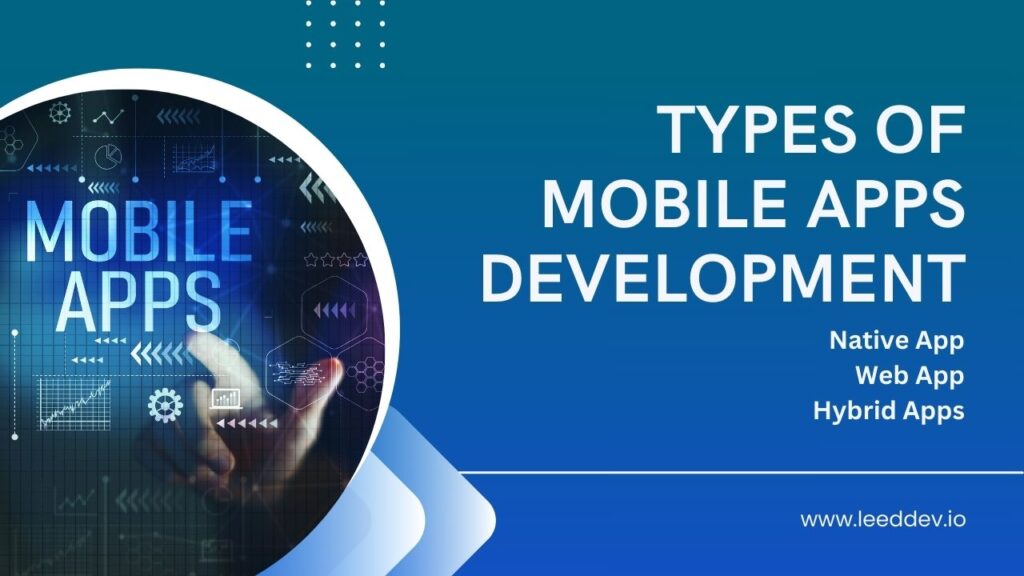
Prior to selecting the ideal languages for app development, it is necessary to gain an understanding of the different types and languages used for mobile apps.
Native Apps
Native apps are device-specific, accessible through app icons, created with device-specific languages (Java for Android, Objective-C, or Swift for iOS), and target one operating system (Android or iOS), available on Apple App Store and Google Play Store.
Advantages
The following are the advantages of Native Apps:
- Offline Usability
- Better Performance
- Improved Security
- Instant Updating
- Advanced Customization.
Web Apps
Web applications are remote server-based programs delivered over the internet that power features like shopping carts, product search bars, and social media updates on websites without requiring software downloads or installations for advanced functionality.
Advantages
The following are the advantages of Web Apps:
- Efficient Development
- Scalability
- User simplicity
- Easy Accessibility
Hybrid Apps
Hybrid apps combine native and web app elements for maximum compatibility on devices and app store availability. Leveraging HTML5, they act like an embedded web browser within an app.
Advantages
The following are the advantages of Hybrid Apps:
- Cross-platform compatibility
- Cost-effective
- Shorter development time
- Scalability
Top Languages for Android App Development
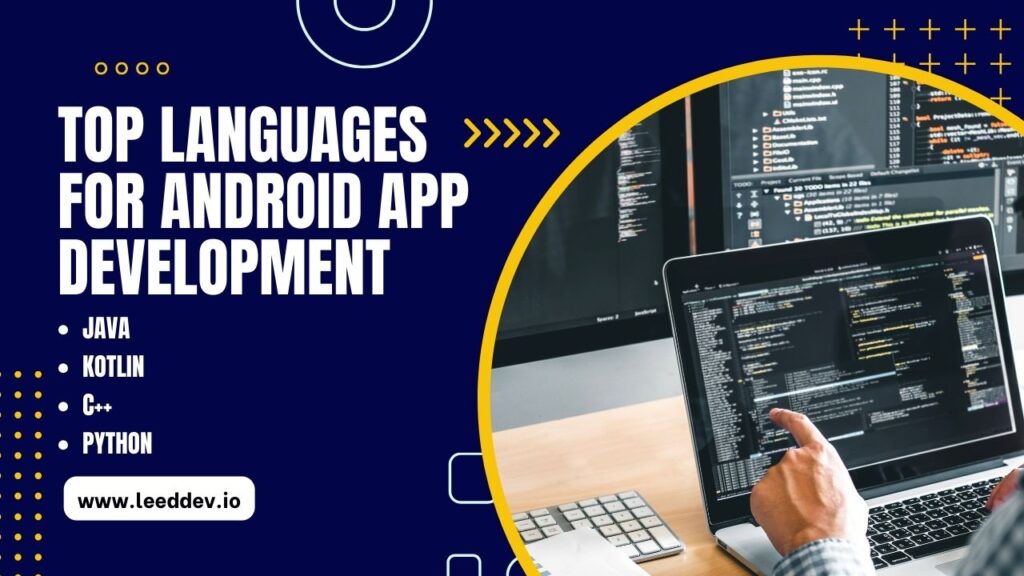
Regarding Android, some of the best languages for app development are as follows:
Java
Java, an expansive and reliable programming language, should be your go-to option when it comes to app development. Perfect for phone apps, computer programs, and enterprise software. Java offers speed, safety, and reliability with its rapid development times and free programming features for local or distributed development environments.
Key Features
Some of the key features of Java language, one of the best languages for app development, are as follows:
- Java is widely utilized for game development, including modern titles with sophisticated tech.
- With cross-platform compatibility and strong AI support, it makes an excellent platform for cloud apps.
- The programmability of edge devices connected to the Internet is extremely useful in IoT environments.
Kotlin
Kotlin is a rising star in Android app development. It’s modern, efficient, minimizes errors, and integrates seamlessly with Java for high-performance results. It’s also great for exploring functional programming.
Key Features
- Conciseness: Kotlin saves time with concise code.
- Conversion: It easily converts Java to Kotlin with efficient execution.
- Community Support: Strong online community support.
- Asynchronous Programming: Simplifies asynchronous programming with coroutines.
- Platform Flexibility: Runs on various platforms.
- Null Safety: Handles null values efficiently, preventing crashes.
C++
C languages excel in high-performance app development, with C being ideal for resource-intensive mobile 3D games. Java remains crucial for complete app development, but C/C++ can be integrated using Android NDK, especially for creating libraries. Additionally, C++, an extension of C by Jarne Stroustrup, offers cross-platform development capabilities.
Key Features
Some of the key features of C/C++ are as follows:
- C++ is an Object Oriented Programming Language through which it is easy to create or destroy objects while programming.
- Although the language is not platform-independent, but is machine-independent.
- C++ is one of the best languages for app development, as programs can be broken down into logical units or parts.
- Users can allocate the memory of a variable in run time. This is called Dynamic Memory Allocation.
- One point to consider is that for multithreaded applications, the C++ language doesn’t contain any built-in support.
Python
Python is an excellent choice for app development due to its user-friendliness, speed in application creation, clear and readable code, cost-saving maintenance, code organization with modules/packages, free availability on multiple platforms, and vast repository of pre-made code.
Key Features
Some of the key features of Python:
- Python is widely utilized in data science for numerous tasks. It can help with complex statistical calculations and data manipulation tasks, as well as visualizing data visually using line graphs, bar graphs, pie charts, histograms, or 3D plots.
- TensorFlow and Keras libraries enable Python users to undertake machine learning development quickly, while it offers various web development frameworks – Django and Flask being particularly popular options.
- Python scripting enables efficient automation of tasks like error checking across multiple files, file conversion, basic mathematical operations, and data deduplication.
Top Languages for iOS App Development
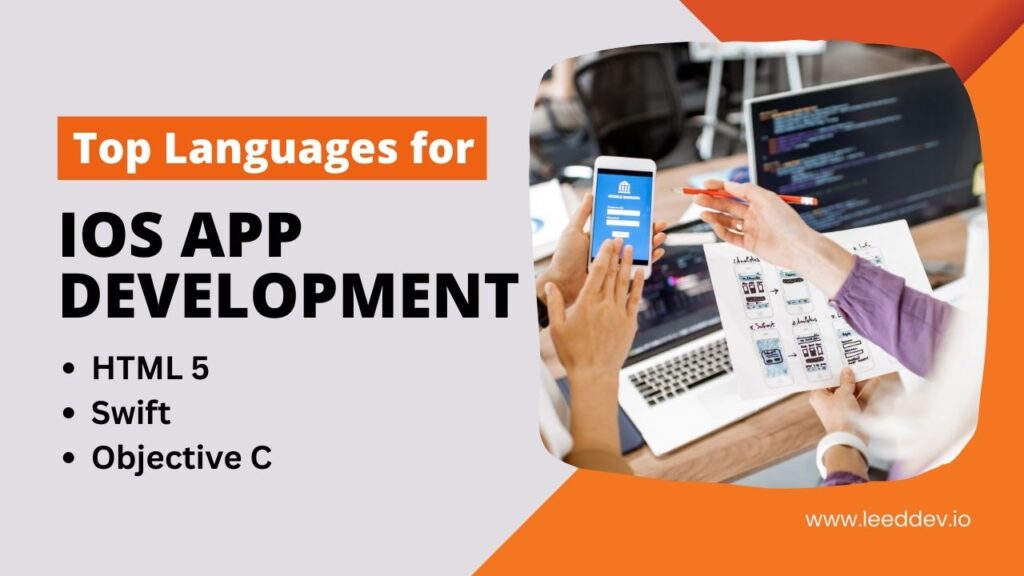
HTML 5
HTML5 is the latest version of the code language for creating web content. It’s maintained by major companies like Apple, Google, Mozilla, and Microsoft. When using HTML5, you work with HTML for content, CSS for style, and JavaScript for functionality. Transitioning from older HTML versions is easy; just include a small code snippet to declare HTML5 usage at the project’s start.
Key Features
- HTML5 introduces semantic tags like <p> (paragraphs) for better search engine optimization and allows direct handling of audio and video without third-party plugins like Adobe Flash.
- This simplifies web development and provides greater creative freedom to HTML developers.
- The HTML Geolocation API can determine a user’s location with their consent, benefiting services like taxi booking, food delivery tracking, and fitness apps.
- Local Storage, an advanced HTML feature, enables websites to store data on a user’s device using JavaScript.
- This is advantageous for creating offline-capable apps that require local data storage.
Swift
Swift, developed by Apple in 2014, is a fast and flexible programming language designed to integrate easily with Apple tools and older Objective-C code, as well as C and C++ languages used on Apple devices.
Key Features
- Swift’s flexible functions work seamlessly with any dataset.
- Error management in Swift is straightforward and manageable.
- Swift facilitates the creation of structures and classes with ease.
- It allows adding new behaviors to specific elements within Swift.
- The Swift package manager is a valuable tool for code building and management.
- It also serves as a debugger tool for issue resolution.
- Swift ensures compatibility with different library versions.
- Closures in Swift provide an innovative syntax for improved code readability and writing.
Objective C
Objective-C is a top choice for iOS app development, based on C and enriched with object-oriented features like classes, objects, and polymorphism. Created by Brad Cox and Tom Love in the early 1980s, it gained prominence through Steve Jobs and NeXT in the late 1980s and early 1990s.
Key Features
- General purpose programming language objective C is for making apps on Apple devices.
- Apple’s development tools, like Xcode, are designed for Objective-C and other languages to work with Apple’s software frameworks.
- Many developers are using Objective-C, so there are lots of resources to help you.
- There’s a big library of code that’s already been made in Objective-C.
- But remember, it’s mainly used for Apple devices, so you can’t easily make apps for other platforms like Android.
- It might not be as easy to learn as some other languages for beginners.
How to Choose the Best Programming Language for Mobile Apps?
- Define Project Goals: Identify your app’s purpose, target audience, and key features.
- Consider Platform: Choose based on whether you’re developing for Android, iOS, or both.
- Evaluate Language Strengths: Match the language’s strengths with your app’s needs.
- Assess Development Speed: Consider how quickly you need to develop and launch the app.
- Check Community Support: Opt for languages with strong community and documentation support.
- Review Long-Term Maintenance: Ensure the language supports ongoing updates and maintenance.
- Consider Integration Needs: Choose a language that integrates well with required tools and services.
Conclusion
Overall, this article provided valuable insights into the best programming languages for app development across both Android and iOS platforms. Java and Kotlin excel when developing apps specifically targeted to Android while Swift/Objective-C are ideal for iOS development; HTML5 remains key when building web-based apps; Python also adds versatility across many aspects of an application’s life cycle.
The selection of the appropriate language depends on project requirements. Java and Kotlin offer high performance with community support on Android, Swift/Objective C integrates seamlessly with iOS HTML5 improves web apps while Python provides user friendliness and versatility.
Language choices should match with specific app goals and needs to ensure successful development endeavors.
FAQs
What programming language is used for Android app development?
Java: Reliable, widely used, with strong community support.
Kotlin: Modern, efficient, integrates well with Java, and simplifies asynchronous programming.
C++: Ideal for high-performance applications and game development, often used with Android NDK.
Python: Useful for rapid development and integration with machine learning libraries.
What is the role of HTML5 in app development?
HTML5 is used for web apps, providing enhanced capabilities like direct audio/video handling, improved SEO, and offline storage. It simplifies web development and offers creative freedom.
Which programming language is used for developing native iOS apps?
Swift: Fast, flexible, and integrates well with Apple tools and Objective-C.
Objective-C: Established language for iOS apps, with a robust library and extensive resources.
How can I reduce my app’s development time?
Using hybrid apps or cross-platform development frameworks like React Native can speed up the process by allowing code reuse across Android and iOS. Additionally, leveraging white-label app solutions can expedite development and launch.
What are the advantages of native apps?
Native apps offers:
Better Performance: Optimized for specific platforms.
Offline Usability: Function without internet access.
Enhanced Security: Leverages platform-specific security features.
Instant Updates: Quick to implement platform-specific features.
Advanced Customization: Allows deeper integration with device features.
Which programming language is best used for developing web apps?
The following are the best languages for developing web apps:
JavaScript/TypeScript
Python
Ruby
PHP
Java
C#
Go
Rust

